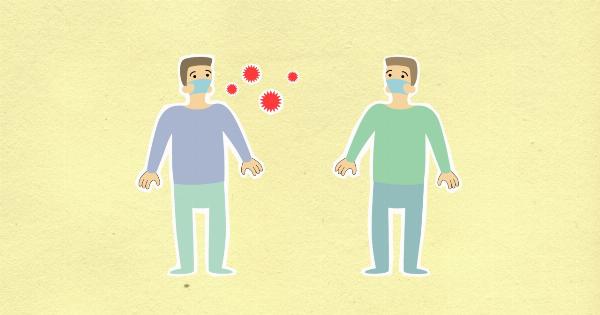Rare diseases are a group of disorders that affect a small percentage of the population. To be considered rare, a disease typically affects fewer than 200,000 people in the United States.
However, there are approximately 7,000 known rare diseases, and when combined, they impact the lives of millions of individuals worldwide.
Due to their rarity, rare diseases often receive inadequate attention and funding compared to more prevalent conditions. As a result, diagnosis, treatment, and support for those affected can be challenging.
Fortunately, there is a growing movement to unite individuals, organizations, and governments in their efforts to address the unique needs of rare disease patients.
1. The Importance of Awareness
Awareness is a crucial first step in addressing the challenges faced by those living with rare diseases. Many rare diseases go undiagnosed or misdiagnosed due to a lack of awareness among healthcare professionals.
Additionally, the general public often lacks knowledge about these conditions, leading to stigmatization and isolation for those affected.
In recent years, awareness campaigns, such as Rare Disease Day, have emerged to shed light on rare diseases and advocate for increased research and support.
These initiatives aim to educate healthcare professionals, policymakers, and the public about the existence and impact of rare diseases, ultimately fostering compassion and understanding.
2. Research and Innovation
Advancements in medical research and innovation are vital for the development of effective treatments and therapies for rare diseases. However, limited funding and a lack of resources present significant barriers to progress in this area.
Collaboration between researchers, clinicians, and pharmaceutical companies is crucial for driving breakthroughs in rare disease research.
By pooling their expertise and resources, these stakeholders can accelerate the development of targeted therapies, genetic testing methods, and diagnostic tools specific to rare diseases.
Funding agencies and governments also play a critical role in supporting rare disease research. Increased investment in research grants and clinical trials can fuel advancements in understanding these conditions and developing effective interventions.
3. Patient Advocacy
Individuals with rare diseases often face unique challenges, such as delays in diagnosis, limited treatment options, and difficulty finding knowledgeable healthcare professionals.
Patient advocacy organizations have emerged to address these gaps and provide support for rare disease patients and their families.
These organizations serve as a collective voice for those living with rare diseases, advocating for improved access to healthcare services, funding, and research.
They play a pivotal role in raising awareness, facilitating patient support networks, and driving policy changes to enhance the lives of individuals affected by rare diseases.
4. Sharing Knowledge and Best Practices
Sharing knowledge and best practices is essential for advancing rare disease research and improving patient care. Collaboration among healthcare professionals, researchers, patients, and organizations fosters the exchange of information and expertise.
Scientific conferences, symposiums, and online forums provide platforms for stakeholders to share their latest findings, discuss challenges, and explore potential solutions.
By learning from one another, the rare disease community can collectively enhance their understanding of these conditions and the best approaches to managing and treating them.
5. International Collaboration
Rare diseases do not discriminate based on geography or nationality. International collaboration is crucial for addressing these conditions effectively.
Governments, healthcare systems, and organizations across countries must work together to overcome barriers and share resources.
International collaborations allow for the pooling of patient data, research findings, and expertise, leading to a more comprehensive understanding of rare diseases and the development of universal treatment guidelines.
These efforts also facilitate the exchange of medications and therapies, ensuring individuals in different regions have access to the treatments they need.
6. Empowering Rare Disease Patients
Empowering rare disease patients and their families is essential for improving their quality of life. Often, individuals with rare diseases face loneliness, anxiety, and a lack of appropriate emotional support.
Supportive resources, such as counseling services, peer support groups, and online communities, can provide rare disease patients with the emotional and practical support they need.
Additionally, empowering patients to actively participate in research and advocacy efforts allows them to have a voice in shaping policies and treatments that directly impact their lives.
7. Governmental Support and Policy Changes
Governmental support and policy changes are instrumental in improving the lives of rare disease patients.
It is essential for governments to recognize the unique challenges faced by individuals with rare diseases and develop policies that address their needs.
Initiatives such as financial assistance programs, tax incentives for research and development, and streamlined approval processes for orphan drugs can incentivize pharmaceutical companies and researchers to invest in rare disease research.
Legislative efforts can also focus on promoting equitable access to healthcare, ensuring insurance coverage for rare disease treatments, and increasing funding for research and patient support.
8. Orphan Drugs and Access to Treatment
Orphan drugs refer to medications specifically developed to treat rare diseases. Due to the limited market potential for these drugs, their development and production can be financially challenging for pharmaceutical companies.
Legislation exists in many countries, including the Orphan Drug Act in the United States, which provides incentives for pharmaceutical companies to invest in creating treatments for rare diseases.
These incentives can include extended patent protection, tax benefits, and expedited regulatory review processes.
Ensuring affordable access to orphan drugs is critical for rare disease patients.
Governments and policymakers need to work towards reducing the financial burden associated with these treatments and ensuring equitable access for all individuals in need.
9. Rare Diseases and the COVID-19 Pandemic
The COVID-19 pandemic has highlighted the vulnerabilities faced by individuals with rare diseases. Many of these individuals are immunocompromised, making them more susceptible to severe illness if infected with the virus.
During the pandemic, it has become even more critical to ensure that rare disease patients have access to regular healthcare services, necessary medications, and support networks.
Telemedicine and virtual healthcare solutions have emerged as valuable tools for delivering care remotely and minimizing the risk of exposure to the virus.
10. The Path Forward
Uniting for rare diseases requires a multi-faceted approach involving various stakeholders.
Governments, researchers, healthcare professionals, patient advocacy organizations, and the general public all have a role to play in addressing the unique challenges faced by rare disease patients.
By increasing awareness, supporting research, facilitating international collaboration, and empowering rare disease patients, society can forge ahead towards improved diagnosis, treatment, and support for those living with rare diseases.






























